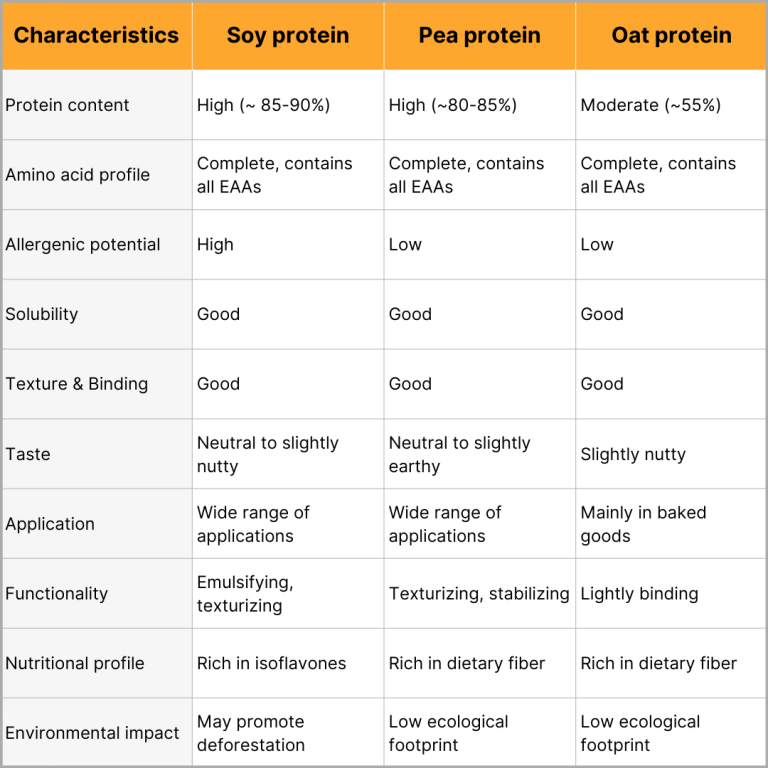JUN 23, 2023
Sustainable innovation in oats: The importance of oat protein
Protein, an essential component of the diet, plays an important role in building and repairing tissues in the body.
Plant-based proteins are becoming increasingly popular, and oats are proving to be a remarkable source of high-quality plant-based protein. In this article, we will focus on Oat Protein and take a closer look at how oatmeal is turned into an outstanding source of protein.
Oat protein is a plant-based protein derived from oats. It is a complete protein, which means it
contains all nine essential amino acids. These essential amino acids, including histidine, isoleucine, leucine, lysine, methionine, phenylalanine, threonine, tryptophan and valine, are essential for a variety of functions in the body. They play an important role in the formation of enzymes and hormones, building tissue and supporting the immune system. A balanced diet that includes sufficient protein sources ensures the intake of all nine essential amino acids in adequate amounts. Oat Protein has a high biological value, which means that it can be well absorbed and used by the body.
Methods for the production of oat protein
Oat protein can be produced in a number of ways. The most commonly used methods are wet extraction and dry extraction.
In the
wet extraction method, oat flakes are soaked in water to form an
oat milk. This oat milk is then
filtered to separate the protein from the other components of the oat milk. The protein obtained is
washed, dried and stored in powder form.
The
dry extraction method, on the other hand, starts by
grinding the oats into flour, which is then
dried in an oven to remove the water. The dried oatmeal is then mixed with an
organic solvent such as ethanol or methanol to dissolve the protein. The solvent is then separated and the protein is
purified, dried and made into a powder.
Advantages of oat protein in food production
Oat protein offers numerous benefits compared to other plant-based protein sources. Some of the most important advantages are listed below:
-
High biological value: Oat protein contains all nine essential amino acids and therefore has a high biological value. The body can absorb and use it efficiently.
-
Gluten-free: Naturally, oat protein is gluten-free, making it a good option for people with gluten intolerances.
-
High in fiber: Oats are rich in fiber, which can help regulate blood sugar levels and reduce the risk of heart disease and bowel cancer.
-
Low fat content: Oat protein has a low fat content and is therefore well suited for people who are watching their calorie intake.
-
Versatility: Oat protein can be used in a variety of recipes, including smoothies, baked goods, cereal bars and more. It is flavorless and mixes easily with other ingredients, which adds to its versatility.
Functional properties for innovative products
In addition, oat protein is a
sustainable and environmentally friendly protein source as it is derived from a plant that requires relatively few resources compared to other protein sources. This results in a
smaller carbon footprint and
less water consumption. Oats are also a
rich source of fiber, vitamins and minerals, making oat protein a nutritious ingredient that contributes to a balanced diet.
Oat protein powder has an
average protein content of 55% and a smaller particle size compared to conventional products, resulting in a pleasant and smooth mouthfeel. Although it is mainly used in baked goods, it can be used in a variety of applications, especially those where texture and mouthfeel are important, such as
dairy alternatives, plant-based beverages and lifestyle nutrition. Because it is
just slightly nutty and blends easily with other ingredients, it opens up a wide range of possibilities in different recipes.
In summary, oat protein is a
high-quality protein source that offers numerous
benefits for both consumers and manufacturers. Its soft texture, neutral taste, sustainable origin and high nutritional value make it an attractive option for those looking for a
plant-based protein alternative.
Let's simplify the future of change!





